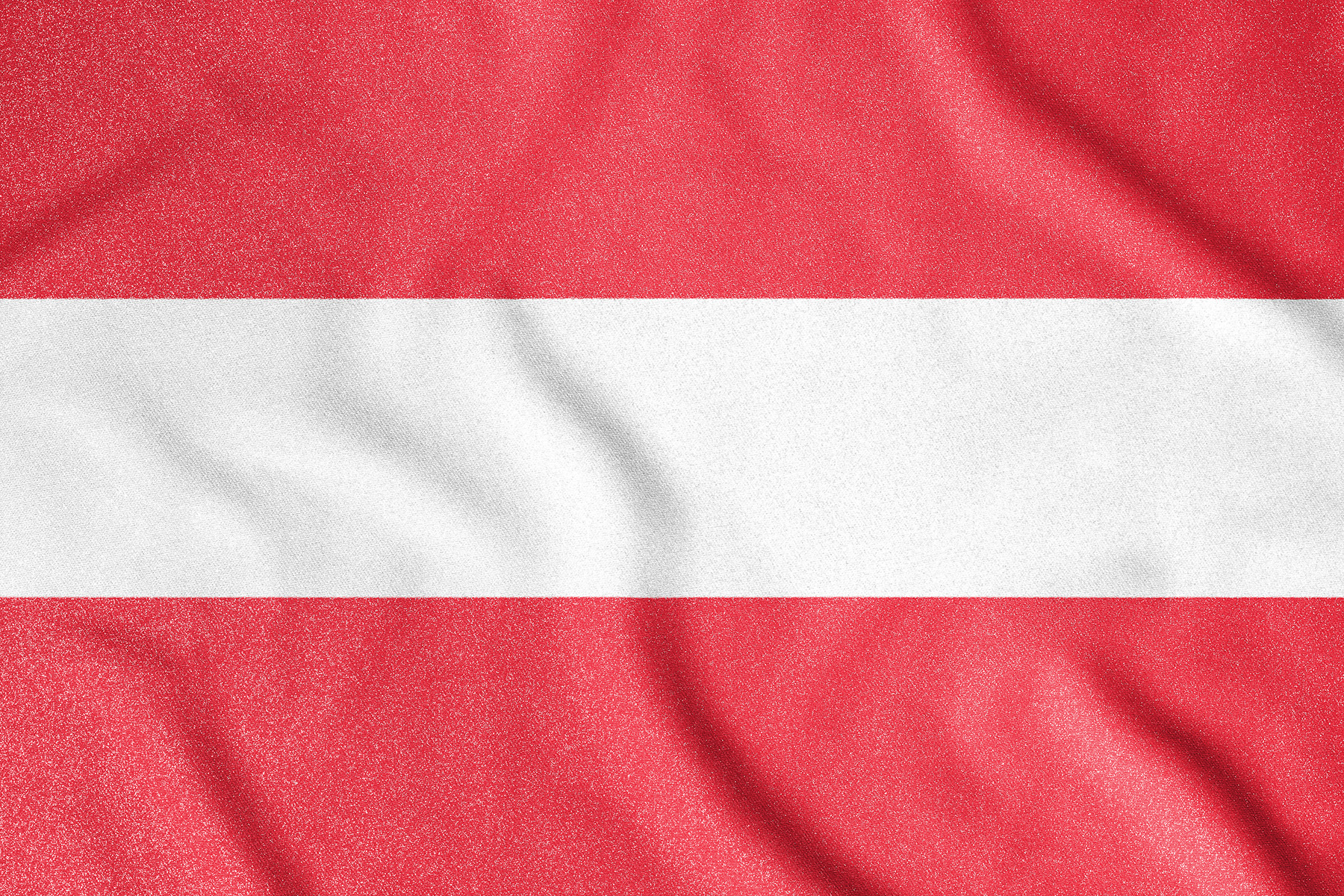- e-mail us
- We are Open
Study in Austria
- Home
- Study in Austria

The conditions for studying in Austria at the bachelor’s, master’s, and PhD levels, along with education expenses, residency laws related to education, and scholarship opportunities in Austria, will be discussed in this article. The availability of free education and the potential for scholarships have made Austria one of the top destinations for immigration through education. In recent years, many immigrants have moved to Austria for educational purposes, and many others are considering this option.
For these reasons, we have decided to write this article to address your questions about immigration to Austria and analyze these conditions and circumstances. We hope that this article that prepared by experts at Talav Company will enhance your understanding of the requirements for obtaining an education visa for Austria. If you are considering immigrating to Austria through education, this information will help you make informed decisions. You can also receive a free consultation from our team via phone.
Topics covered in this article:
– General requirements for studying in Austria
– Educational framework in Austrian schools
– Criteria for admission to bachelor degree in Austria
– Criteria for admission to master degree in Austria
– Criteria for admission to PhD programs in Austria
– Pursuing studies in Austria with diploma
– Conditions for scholarships in Austria
– Costs of education & living in Austria
– Employment opportunities for students in Austria
– Conditions for dependent visas for studying in Austria
– Introduction to top universities in Austria
– Requirements for securing a student visa for Austria
– Conditions for post-study work permits in Austria
– Obtaining post-study citizenship in Austria
– Commonly Asked Questions
– Last words about Studying in Austria

General requirements for studying in Austria
The Republic of Austria is located in central Europe, bordered by the Czech Republic and Germany to the north, and Italy and Slovenia to the south. Austria consists of 9 provinces, with Vienna as its capital. It has a population of approximately 9 million people. The predominant religion is Christianity, although there is also a Muslim population. Austria operates as a Parliamentary Federal Republic, and the official language is German. In 2015, Austria was ranked as the 14th wealthiest country in the world. Vienna, the capital, has been recognized as the best city to live in globally. Austria’s high-ranking universities have attracted many international students. Here, we outline the conditions for studying in Austria.
Educational framework in Austrian schools
In Austria, schools are generally categorized into public and private institutions. Public schools comprise 90 percent of the total, while private schools make up the remaining 10 percent. Many private schools offer religious education and follow a specific system. Private schools require tuition fees, whereas public schools are entirely free and maintain high standards compared to other countries.
One of the prerequisites for studying in Austria is completing a 9-year compulsory education period, which spans ages 6 to 15 and includes 4 years of elementary education followed by 3 years of middle school. The table below provides detailed information about studying in Austria.
|
Academic year |
Grade |
Name in German |
|
1st to 4th |
Elementary school |
Volksschule |
|
5th to 8th |
Middle school |
Neue mittelschule |
|
9th |
– |
Polytechinsche schule |
|
9th to 12th |
Highschool |
Berufsbildende hohre |
|
10th to 13th |
Professional school |
berufsschule |
Among international schools of Austria we can mention AMADEUS, international school of St.Gilgen.
Criteria for admission to bachelor degree in Austria
To gain admission to a bachelor’s degree program at public universities in Austria, you must participate in the Konkoor (entrance exam for universities) in Kurdistan. If you are accepted into national universities in Kurdistan, you can then apply to the Austrian embassy for admission to Austrian public universities. Austrian universities favor degrees from national universities over those from Azad universities. The duration of a bachelor’s degree is four years. During this period, students are permitted to work part-time for up to 10 hours per week to help cover living expenses in Austria. The Austrian embassy grants student visas to international bachelor’s students who have admission letters from Austrian universities, as well as to their dependents. Proficiency in German is a requirement for studying in Austria. The following documents are needed for admission to a bachelor’s degree program in Austria:
- Certificate of non-prohibition of education in your home country
- Proof of diploma and grade transcripts
- English language certificate if you plan to study at international universities
Criteria for admission to master degree in Austria
Applications for master’s degree programs are more common than for other degrees, and at this stage, you can choose your major based on your bachelor’s degree and continue your studies. This stage lasts two years, with the academic year beginning in October or September. For more details, refer to the website of your university. The following documents are required for admission to a master’s degree program in Austria:
- Proof of diploma and grade transcripts
- Proof of bachelor’s degree and grade transcripts
- Academic degree and its translation
- Certificate of non-prohibition of education in your home country (very important)
Master’s degree students in Austria are allowed to work part-time for up to 20 hours per week to help offset some of their living expenses. Courses at Austrian universities are offered in both German and English, so proficiency in these languages is necessary.
Criteria for admission to PhD programs in Austria
Studying for a PhD is similar to a master’s degree in that you must pass an entrance exam. Additionally, for some fields such as technical courses, you will need a supervisor professor. It is recommended to find your supervisor while still in Kurdistan. For fields like humanities, you have one year to find a supervisor after arriving in Austria. If you find your supervisor in Austria, you may also earn money, as supervisors typically pay their students between €1,000 to €2,000, which can cover living expenses. A PhD program lasts 4 to 5 years, during which you must demonstrate your scientific capabilities.
Special Offer to Study for a PhD at TU Wien University
Talav Company exclusively accepts PhD students in engineering and technical fields at TU Wien, one of Austria’s top universities. Our Company handles all stages, including obtaining admission, selecting a supervisor, and securing a student visa. Education costs at this university are nearly free, and you can earn a salary if your supervisor deems it appropriate. Spouses and children of the applicant will also receive Austrian residency. 80 percent of the total consultation fee is payable after the process is completed.
Pursuing studies in Austria with diploma
With a diploma, you can pursue a bachelor’s degree in Austria. Studying at colleges and private universities in Austria is possible with a diploma, but if you wish to study at public universities, a diploma alone is not sufficient. For these universities, you must participate in university entrance exams in Kurdistan & be accepted. Studying at private universities with only a diploma is possible.
Conditions for scholarships in Austria
Scholarships are available in every country, including Austria, and they facilitate educational opportunities. Generally, obtaining a scholarship for a bachelor’s degree is more challenging than for a master’s or PhD. Scholarships are often provided for PhD programs. Securing scholarships for bachelor’s and master’s degrees requires high academic scores among your peers. Additionally, having a registered invention is advantageous for applicants. As mentioned, scholarships are primarily offered to PhD students, who can benefit from these opportunities. Besides these scholarships, there are others available for individuals with high IQs, excellent grades, financial need, and registered inventions.
Costs of education & living in Austria
Austria is one of the wealthiest countries in the world, but living expenses are more affordable compared to other European countries. This section provides information on the cost of living and studying in Austria. As previously mentioned, studying in Austria is possible through both public and private means. Education at public universities is nearly free, with only €400 to €500 required for enrollment and student activities. However, private schools are more expensive. For example, studying for a master’s degree costs €12,000 to €14,000 annually. The following table shows some daily living expenses in Austria.
oods | Cost in euro |
Water (1.5 lt.) | 1.34 |
Bread (500 gr.) | 1.71 |
Rice (1 kg) | 1.27 |
Eggs (12) | 2.70 |
Beef (1 kg) | 14.65 |
Tomato (1 kg) | 2.19 |
Banana (1 kg) | 1.62 |
Cheese (1 kg) | 11.18 |
Onion (1 kg) | 1.38 |
Apartment (1 bedroom) in City Center | 847.77 |
Apartment (1 bedroom) outside of City Center | 621.88 |
Employment opportunities for students in Austria
It was mentioned that student jobs are one way for students to reduce their living expenses in Austria. In general, international students with valid and legal residency in Austria can work while studying. However, according to Austrian labor laws, all foreign nationals in Austria need a work permit to be able to work. Based on the regulations in Austria, bachelor, master, and PhD students are allowed to work 10, 20, and 30 hours per week, respectively. It is important to note that working alongside studying is different from internships, which are available to bachelor students in Austria.
These online platforms and websites can help you find a job in Austria:
Conditions for dependent visas for studying in Austria
One of the concerns for married applicants who immigrate to Austria for educational purposes is whether their family can accompany them. For bachelor and master students, the process of acquiring a dependent visa involves living in Austria for 3 months before submitting a dependent visa request for their family at the Austrian embassy. PhD students can bring their family with them when they initially move to Austria because studying for a PhD is considered a profession, allowing the student and their family to travel to Austria together. The requirements for a dependent visa include a letter from the bank proving the financial capability to support the student and their family, a German A2 language certificate, and an IELTS score of 5 for the spouse of the student.
Introduction to top universities in Austria
As previously mentioned, education at Austrian universities is of high quality and often free. Austria is home to many top-ranked universities, making it a desirable destination for many students. Degrees from Austrian universities are recognized worldwide, making it easier to find a job with these qualifications. Here, we will introduce some of the top-ranked universities in Austria.
Name of university | City | Rank in Austria | Worldwide rank |
University of Vienna | Vienna | 1 | 115 |
Polytechnic University of Vienna | Vienna | 2 | 507 |
University of Innsbruck | Innsbruck | 3 | 549 |
Graz University of technology | Graz | 4 | 576 |
Graz University | Graz | 5 | 791 |
Vienna University of Economics and Business | Vienna | 6 | 871 |
Johannes Kepler University | Linz | 7 | 922 |
University of Natural Resources and Life Sciences | Vienna | 8 | 1443 |
University of Klagenfurt | Klagenfurt | 9 | 1450 |
Vienna University of Medical Sciences | Vienna | 10 | 1481 |
Requirements for securing a student visa for Austria
Many applicants aim to gain educational admission to universities in Austria. Generally, admission to Austrian universities is based on the date of enrollment and submission of your application. Therefore, applicants must present the required documents to the university and the Austrian embassy by a specific date. These documents must also be translated, and since translated documents have an expiration date, applicants should pay attention to the date of document submission and their validity. Here are some of the requirements for an education visa in Austria:
- ID of the applicant
- Passport of the applicant and their companions
- Certificate of marriage or divorce
- If the person is a student, they should provide proof of this with a certificate
- Providing a letter of non-prohibition of education in their home country
- Providing previously completed courses and degrees such as high school diploma, etc.
- Providing an English or German language certificate
Conditions for post-study work permits in Austria
Austria is one of the wealthiest countries and has one of the lowest unemployment rates in the world. Because of this, many people aim to obtain an educational visa to eventually work in Austria and gain work residency. According to Austrian law, immigrants are allowed to seek employment for up to 1 year after graduation. It is also possible for students to look for jobs while studying. After securing a job contract with an employer, they can visit the Austrian embassy, provide the necessary documents, change their visa from an education visa to a work visa, and remain in Austria. The table below presents the average income for some jobs in Austria.
Occupation | Average income (USD) |
Software developer | 55,089 |
Engineer | 73,903 |
Manager | 98,501 |
IT project manager | 77,562 |
Architect | 48,087 |
+ Austria Unemployment Rate

Obtaining post-study citizenship in Austria
Obtaining Austrian residency solely through an educational visa is not possible. An educational visa serves as a gateway to entering the job market in Austria. To request permanent residency, the applicant must acquire a work visa and maintain residence in Austria for at least 5 years by renewing it. The conditions for acquiring citizenship are different; the individual must have 10 years of legal residency, and 5 years must have passed since obtaining permanent residency. An individual can request Austrian citizenship and a passport by meeting the following criteria:
- No criminal record
- Proficiency in the German language
- Knowledge of Austrian history and its democratic principles
- Proof of financial capability and consistent income for 6 years
These conditions do not apply to individuals under 14 years old. This article about studying in Austria was written by experts at Talav Company, and any use of it without proper documentation and citation is illegal.
Commonly Asked Questions
✅ Is education free in Austria?
Education in Austria is almost free; universities do not charge tuition, but you will need to pay a small fee for enrollment and other expenses annually.
✅ Is it possible to study in Austria without a language certificate?
If you have a good academic standing, you may be admitted with a low level of language proficiency. In this case, you will need to take language classes in Austria and can enter universities after achieving the required level of language proficiency.
✅ Can you get a scholarship from universities in Austria?
Scholarships are typically awarded to PhD students. To be eligible, you should have an impressive CV, including a high score on a language certificate, published articles in journals, etc.
✅ Is it possible to work in Austria after graduation?
After graduation, you are given 1 year to seek employment in Austria. If you succeed in finding a job, you can obtain permanent residency after 5 years.
Last words about Studying in Austria
We reviewed the study conditions for undergraduate, master’s, and PhD levels, Austrian scholarships, study costs in Austria, and the process of obtaining residence and citizenship after studying in Austria. Austria has attracted many people’s interest in studying due to its low unemployment rate and high-ranking universities. We hope we have answered your questions about studying in Austria. For more information on study conditions in Austria, contact the Company for a free telephone consultation with experts. You can also ask your questions in the immigrants’ questions section of the site or write them below. Our colleagues will respond to your queries as soon as possible.

for immigration & Travel
Useful Links
Warning! The information provided on this website is based on research conducted by non-legal professionals, and Talav Company does not assume legal responsibility for the accuracy or reliability of this content.
We highly recommend that you independently verify this information and consult with a qualified local attorney to ensure it is applicable to your specific situation.

